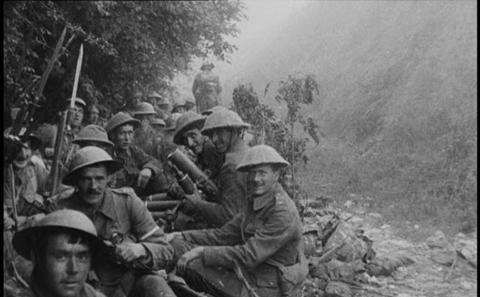'The Great War' Study Day Event

For more information regarding this event, please email Lifelong Learning Team at lifelonglearning@southampton.ac.uk .
Event details
We will be holding a one-day cultural event on Saturday 8 November 2014 consisting of a series of short talks led by experts from the university. This thought-provoking and inspiring conference will offer you the opportunity to learn and engage in discussion about the Great War and the commemoration of conflict more generally.
The First World War was 'the war to end all wars' but its commemoration goes on. This study day will reflect on the role of commemoration in shaping our individual and collective responses to war and conflict. How and why have wars been represented and remembered over the years? What role do specific anniversaries play? Although a major focus of the day will be the First World War, speakers will also draw on other examples to place this conflict in broader historical contexts. Speakers will assess the ways in which people have commemorated war, from public statues, memorials and films to diaries, documents and other personal accounts. There will also be an opportunity for participants to have a guided tour of the special exhibition in the University's Hartley Library.
Programme
John McAleer (History): ‘War, Memory and Britishness’
From the successes of the Seven Years War in the eighteenth century, to the horrors of the Great War in the twentieth, British national identity has been shaped by the country’s experiences of conflict. Using a range of monuments, memorials and other visual sources, this talk will explore some of the ‘uses’ to which the representation and commemoration of war has been put in Britain over the centuries.
Joan Tumblety (History): ‘War and Memory in Modern France’
How did the French understand the loss of over a million soldiers in the Great War, and how was its commemoration shaped by the imprint of earlier conflicts, not only the distant revolutionary and Napoleonic Wars, but the calamitous defeat in the Franco-Prussian War of 1870? This talk will illustrate the emergence of memorial cultures in nineteenth and twentieth-century France by drawing on a range of written, material and visual sources, including personal letters, monuments to the dead, and film.
Mark Cornwall (History): ‘The Divided Memory of the Great War in Eastern Europe’
A million soldiers of the Austro-Hungarian empire died in the Great War. Yet in 1918 this empire collapsed and splintered into seven countries: survivors and prisoners of war returned to new homelands. How was the memory of the war understood in this New Europe of the 1920s and 1930s, where some states claimed to be victors and some were clearly losers? This talk introduces you to the divided memory of war across East-Central Europe, using visual and written material to show how ordinary people tried to come to terms with the catastrophe.
Will May (English): ‘Don’t Mention the War”: poets, silence, and World War I’
When we think of poetry and the First World War, we usually turn to the soldier-poets like Rupert Brooke who had their work transformed into propaganda, or figures like Wilfred Owen who told a compelling story from the front line that belied the patriotic accounts in newspapers. Yet one of the literary legacies of war is also omission, prevarication, and silence. In this talk, we’ll be exploring the work of poets who apparently side-stepped the conflict in their writing, or found its horror so unbearable it could only be considered obliquely.
Karen Robson (Head of Archives), ‘When “the days of conquest are passed”: Reflections on War and Warfare’
Tour of Special Exhibition in the Hartley Library, University of Southampton
The University of Southampton Special Collections is the home of important military archive collections from the late eighteenth century to the mid-twentieth century and covering the Peninsular War and the battle of Waterloo, later nineteenth-century campaigns in Africa, Afghanistan, India, the Crimea as well as the two World Wars. Drawing on material from a wide range of these collections, the exhibition offers differing insights and perspectives on war and warfare. Starting with a reflection on patriotism and duty and those who chose to fight and those who did not, the exhibition also includes material from the front line and from the home front, literary reflections and items on commemoration and remembrance.
Charges
£40 full rate (Loyalty Scheme available: £40 for first Study Day booked, and £30 each for subsequent ones booked)
£25 loyalty rate (Harbour Lights Members, Friends of Parkes, English Teachers Network, university staff and alumni)
£12.50 discount rate (students/sixth form & college students and those in receipt of income-based Job Seeker's Allowance, Income Support, Working Tax Credit, Council Tax or Housing Benefit)
All prices include lunch and refreshments
Payment
BOOKING IS NOW CLOSED
Please note that booking is required for attendance of this event.